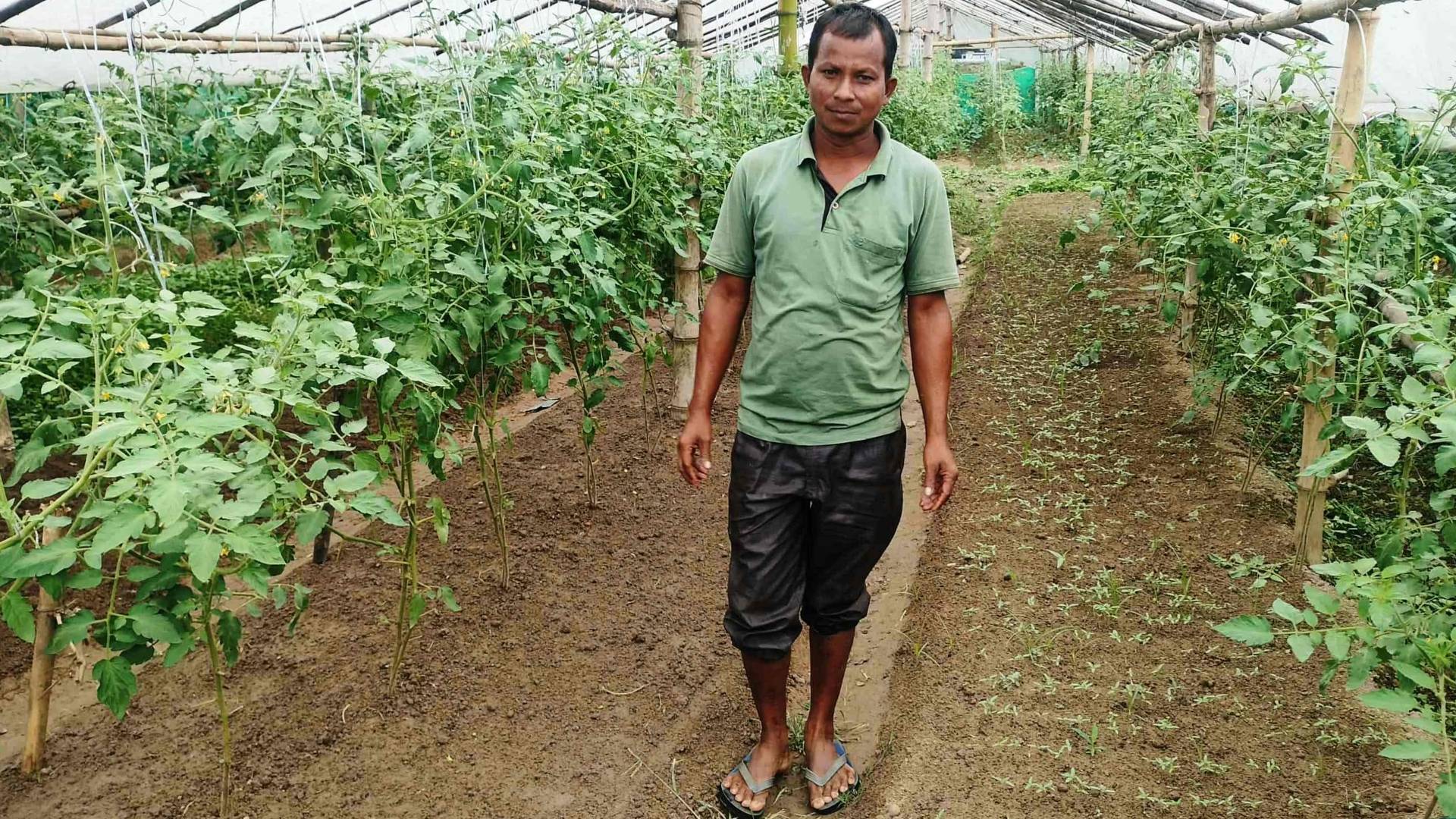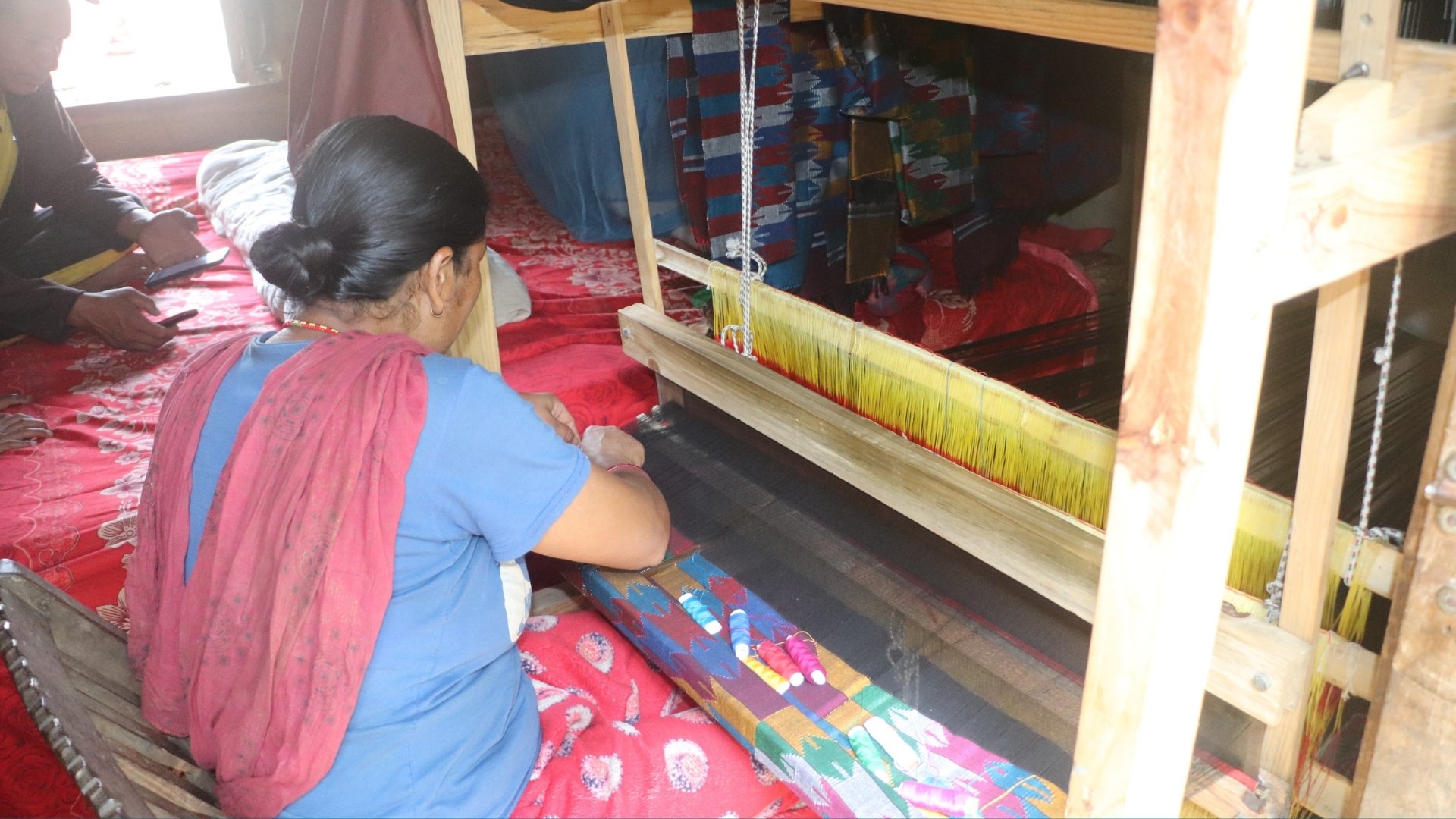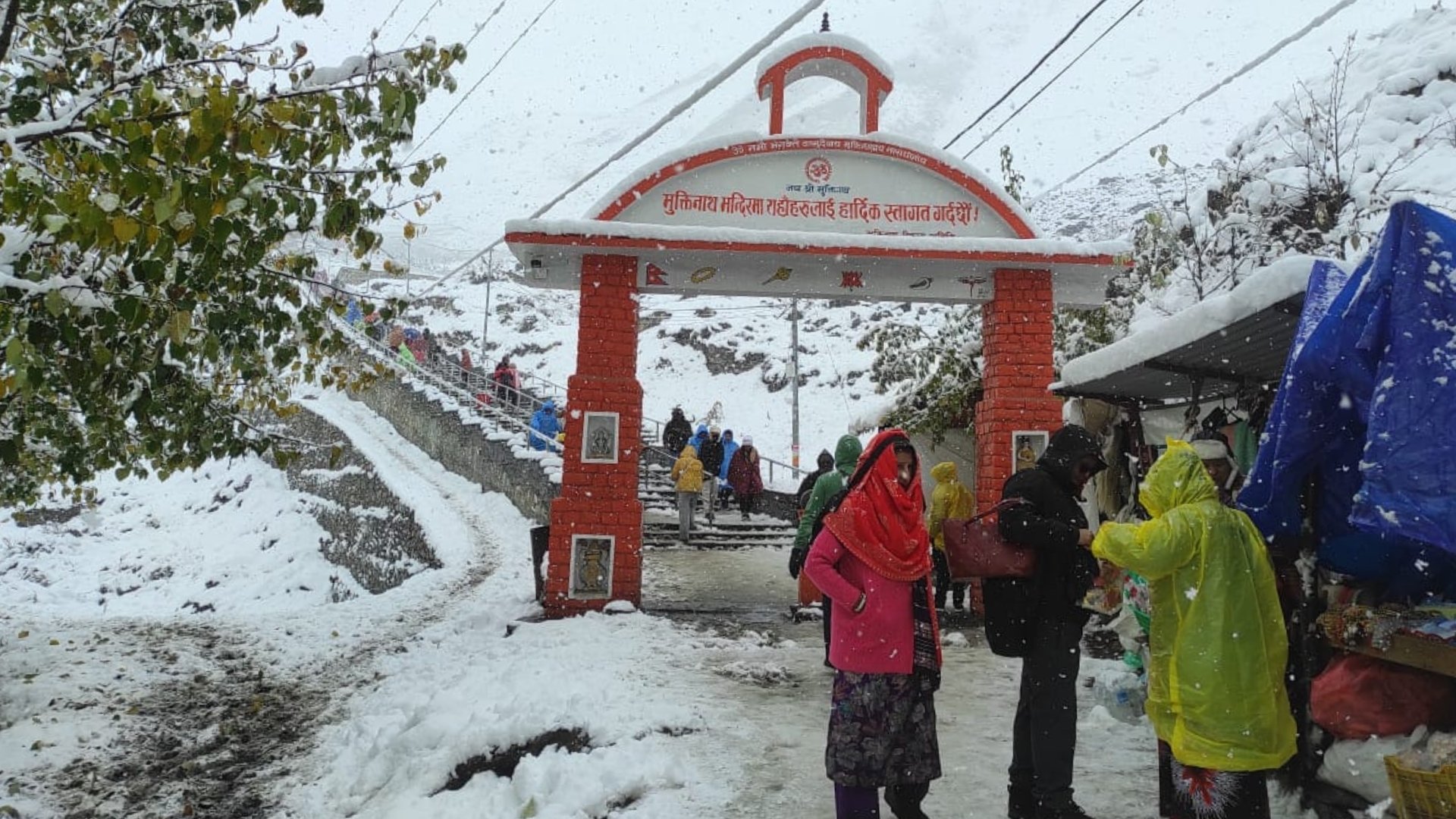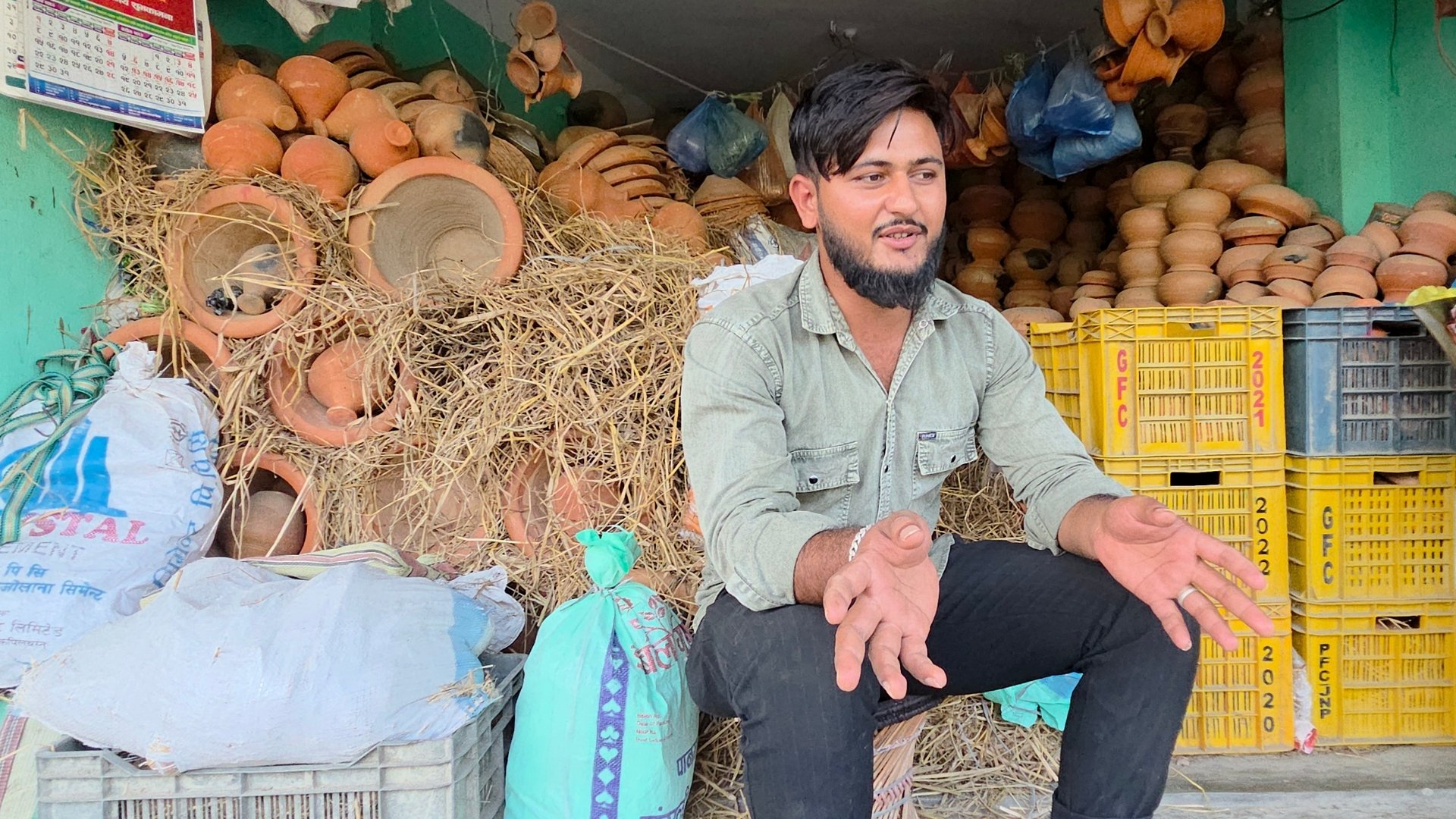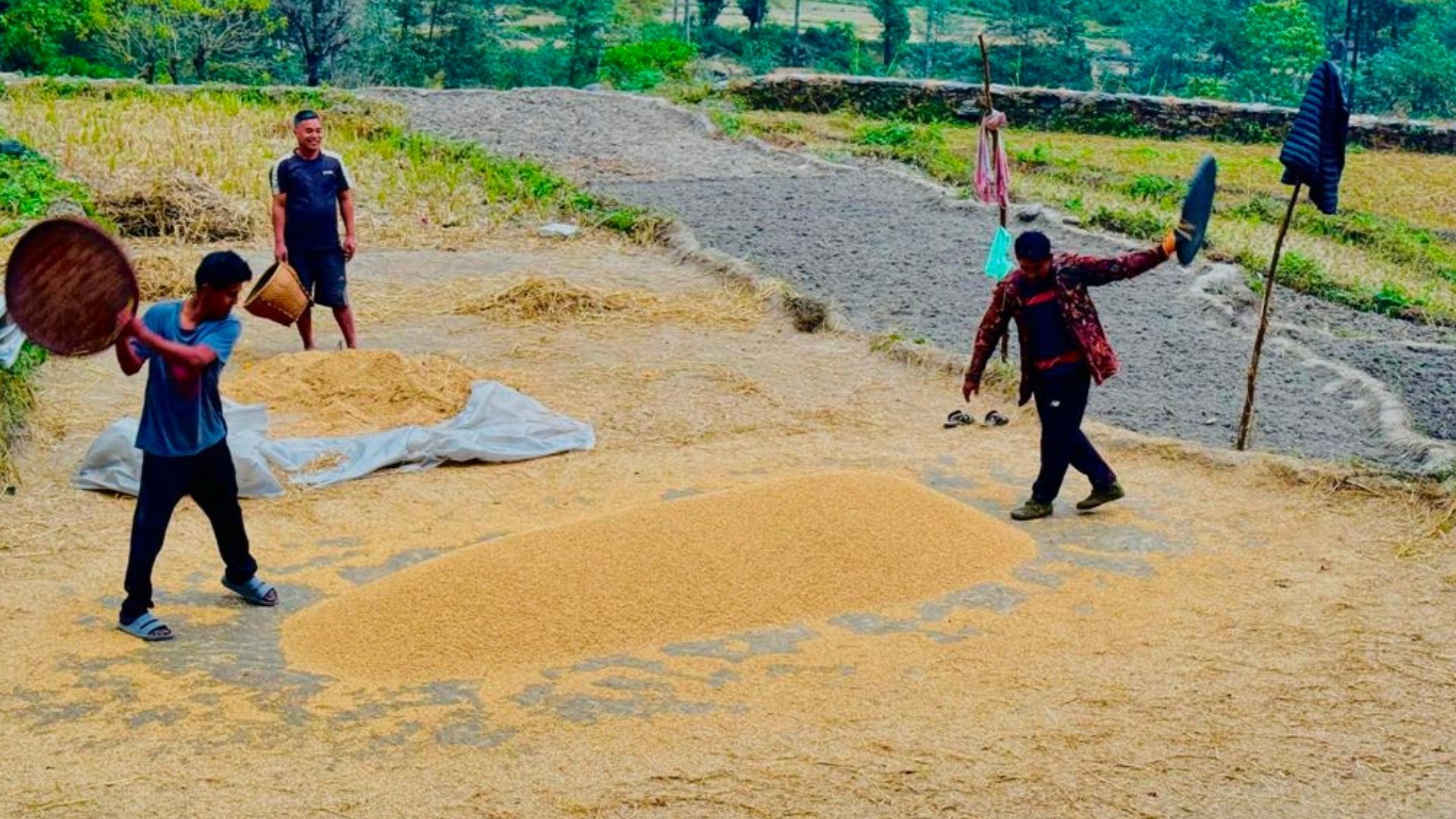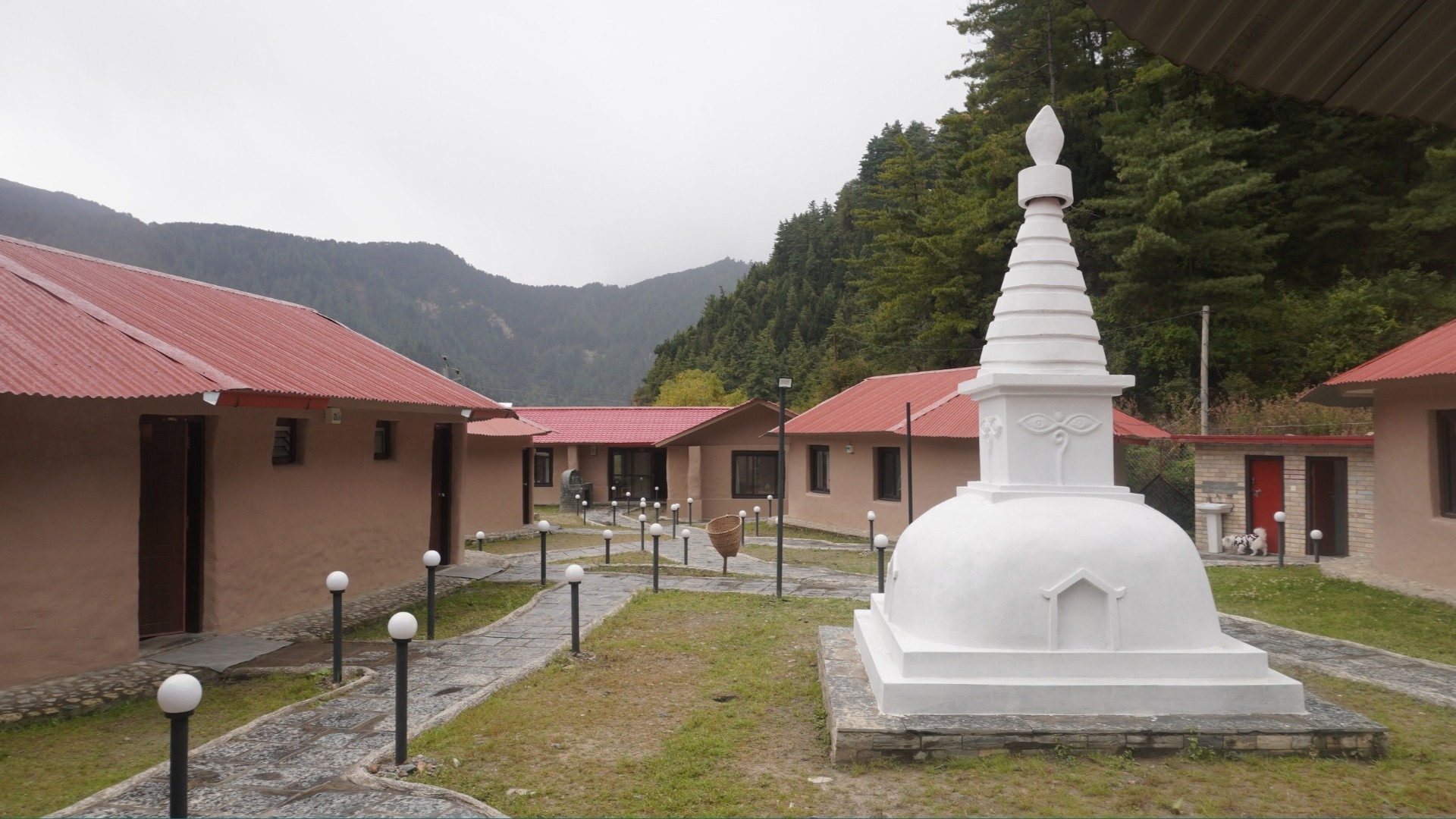Since 2001 (2058 B.S.), Jay Prakash Rana of Bedkot Municipality–1, Champapur, has been continuously involved in agriculture. Once a daily wage laborer working in others’ fields, Rana has today transformed himself into a successful commercial farmer, providing employment opportunities to dozens of people in his own farmland.
For over two decades, he has been engaged in vegetable cultivation—producing seedlings in his nursery, growing vegetables, and selling them to earn an annual income of over NPR 1.5 million. Through hard work, skill, and confidence, he has not only transformed his own life but also changed the agricultural landscape of his village. Inspired by his success, many other farmers in the area have now adopted commercial vegetable farming.
With dedication, self-belief, and expertise, Rana has made vegetable farming his main profession. His greenhouses filled with thriving crops and his advanced nursery have become a source of inspiration for farmers both nearby and from distant areas.
Rana’s day begins before sunrise with the care of vegetable seedlings. His nursery, located along the highway, attracts a daily crowd of farmers coming to buy seedlings. Because of his use of high-quality seeds, farmers from different villages and municipalities come directly to his farm to purchase seedlings.
In his nursery, he produces seedlings of cauliflower, tomato, broccoli, mustard greens, eggplant, capsicum, and onion, among others. Using these seedlings, he also cultivates vegetables commercially on his own farm. Additionally, he grows coriander, bottle gourd, bitter gourd, pumpkin, and cucumber.
Recalling his early days, Rana says, “In the beginning, I worked in others’ fields—preparing soil beds, applying manure and pesticides, raising seedlings, and nurturing the plants. During that time, I learned the techniques of farming and eventually gathered the courage to start my own business.”
With limited capital but immense enthusiasm, he started his first vegetable nursery on land near the highway. “In the first year, the production was low, but all the seedlings were sold, and I earned more than I had expected. That profit gave me confidence to expand. I started preparing more seedlings, selling them, and growing vegetables for the market. Gradually, my income increased, and I no longer had to depend on anyone for money,” he recalls with pride.
At present, Rana cultivates vegetables on one bigha of his own land and four bighas taken on lease. His nursery alone earns him around NPR 500,000 annually, while vegetable farming brings in about NPR 1 million. “I used to earn only about NPR 3,000 a month as a laborer. Now, my farming business generates hundreds of thousands,” he says with a smile.
Thanks to improved seeds, tunnel farming, and an electric irrigation system, his vegetables are of high quality and sell easily in the market. To transport his produce, he has even purchased his own auto-rickshaw. “I used to deliver vegetables to the market on a bicycle, then a motorcycle, and now I use my own auto. Farming, if done properly, can truly change one’s life,” he says proudly.
Vegetable farming has significantly improved his living standards. From living in a small mud house, he now resides with his family in a four-room concrete home. With his farming income, he has also purchased two motorcycles. Farmers from Daiji, Sisaiya, Mahendranagar, and Jhalari of Kanchanpur district now visit his nursery to buy high-quality seedlings directly from his farm. “Because the seedlings are grown from quality seeds, I don’t have to search for a market,” he explains. “Farmers themselves come and buy the seedlings in cash.”
All members of his family support him in the farming business. His wife and son both work alongside him in the nursery and vegetable fields. “When the whole family works together, expenses go down and income increases,” he notes.
With the expansion of his business, Rana has also received training to modernize his farming practices. Through programs organized by the Agriculture Knowledge Center and Bedkot Municipality, he learned about seed selection, soil management, pest and disease control, and modern farming techniques. “Those trainings gave me new ideas, and now I can even teach other farmers,” he says.
Recognizing his dedication, the Agriculture Knowledge Center and the municipality have provided him with agricultural tools and machinery under a subsidy program.
Looking ahead, Rana plans to expand his vegetable cultivation on additional land. He encourages youth to pursue agriculture instead of seeking employment abroad. “If the youth choose agriculture over foreign employment, the country can become self-reliant,” he says. “I once worked as a laborer—now, I am an employer and a proud farmer.”


